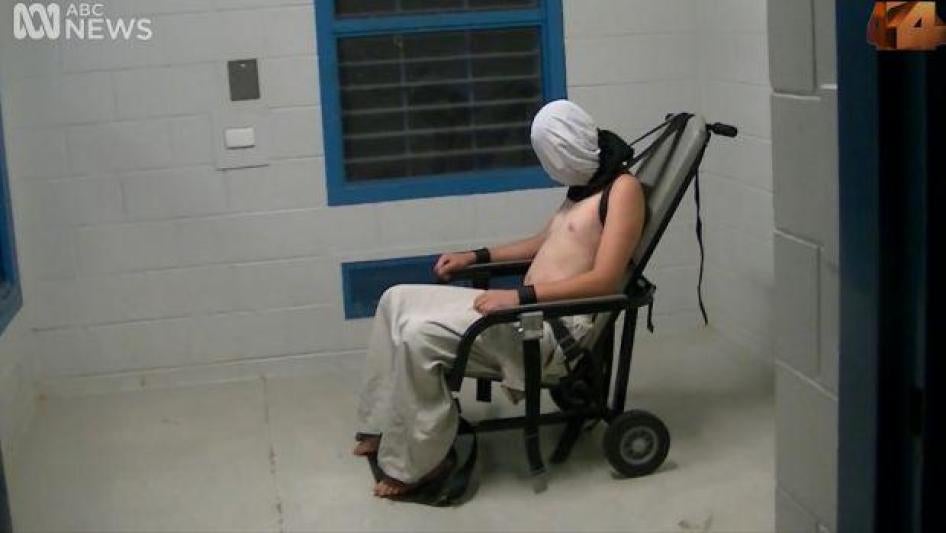(Sydney) – The Australian government’s draconian policy of offshore processing of asylum seekers, its repressive counterterrorism laws, and its failure to protect children in detention are causing lasting damage to Australia’s reputation as a rights-respecting country, Human Rights Watch said today in its World Report 2017.
In the 687-page World Report, its 27th edition, Human Rights Watch reviews human rights practices in more than 90 countries. In his introductory essay, Executive Director Kenneth Roth writes that a new generation of authoritarian populists seeks to overturn the concept of human rights protections, treating rights as an impediment to the majority will. For those who feel left behind by the global economy and increasingly fear violent crime, civil society groups, the media, and the public have key roles to play in reaffirming the values on which rights-respecting democracy has been built.
Australia’s offshore operations, which reflect political rather than humanitarian concerns, have caused severe and lasting harm to refugees and asylum seekers. These policies and practices attracted renewed global criticism from United Nations experts in 2016.
“Refugees and asylum seekers languish in limbo after years of detention, and new laws will subject children to easy-to-abuse control orders,” said Elaine Pearson, Australia director at Human Rights Watch. “If Australia wants to be a global human rights leader, then it should take immediate steps to end these unlawful policies.”
In Australia’s offshore processing system, over 2,000 asylum seekers and refugees remain on Papua New Guinea’s Manus Island and Nauru. Many have dire mental health problems, exacerbated by prolonged uncertainty and long periods in detention. Refugees and asylum seekers have suffered harassment and violence, abuses that largely go unaddressed by authorities.
Neither Nauru nor Papua New Guinea offer refugees meaningful opportunities for local integration, and to date, refugees have been denied acceptable settlement options in Australia or other countries. A “one-off” deal with the United States to accept some refugees has been delayed and, while the deal could be a positive outcome for those covered, resettlement from Australia’s offshore detention sites to the United States is no solution to the systematic problems with offshore processing, Human Rights Watch said.
Australia should take responsibility for refugees in Papua New Guinea and Nauru, end the system of offshore asylum processing and detention, and develop better protection mechanisms for asylum seekers stranded in Southeast Asian transit countries, Human Rights Watch said.
Footage of horrific treatment of children held in Northern Territory and Queensland youth detention centers drew national attention to fundamental failures of Australia’s youth justice system, leading to a number of government inquiries. Incarceration disproportionately affects indigenous children, just as indigenous Australians overall are substantially overrepresented in the criminal justice system.
In 2016, the Turnbull government introduced counterterrorism laws that incrementally chipped away at fundamental rights. Control orders were extended to children as young as 14, allowing extreme limitations on suspects’ movements and communications. The government also passed a law allowing post-sentence detention for people convicted of terrorism offenses who have served their sentences but are deemed to pose an “unacceptable risk” of reoffending. An order of post-sentence detention may be made on the basis of secret evidence for up to three years at a time and renewed indefinitely.
“Indefinite and arbitrary detention of prisoners who have already served their time undermines the rule of law, a crucial component of countering terrorism,” Pearson said. “While Australia has a responsibility to protect its citizens from harm, this shouldn’t come at the cost of undermining basic rights.”








